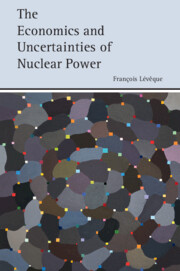Book contents
- Frontmatter
- Contents
- List of Abbreviations
- Introduction
- Part I Estimating the costs of nuclear power
- Part II The risk of a major nuclear accident
- Part III Safety regulation
- Part IV National policies and international governance
- Ten Adopting nuclear power
- Eleven Nuclear exit
- Twelve Supranational governance
- Thirteen International governance to combat proliferation
- Conclusion
- Notes
- Index
Twelve - Supranational governance
Learning from Europe
Published online by Cambridge University Press: 05 January 2015
- Frontmatter
- Contents
- List of Abbreviations
- Introduction
- Part I Estimating the costs of nuclear power
- Part II The risk of a major nuclear accident
- Part III Safety regulation
- Part IV National policies and international governance
- Ten Adopting nuclear power
- Eleven Nuclear exit
- Twelve Supranational governance
- Thirteen International governance to combat proliferation
- Conclusion
- Notes
- Index
Summary
Let us step back now from domestic politics to look at international nuclear governance. We shall start by examining cooperation to prevent nuclear accidents, with a review of work in Europe. In this respect the European Union is a remarkable test-bench: the political and economic integration of Member States is far-reaching and long established; cooperation on safety operates within the framework of supranational bodies such as the European Commission and Parliament; there is even a specific treaty, which set up the European Atomic Energy Community. Moreover, the EU possesses an impressive nuclear fleet, almost a third of global capacity, occupying a relatively small space, divided by national borders: one in four nuclear power plants is located less than 30 kilometres from another Member State. A major accident is therefore likely to affect the population of several countries at the same time. Lastly, almost all of Europe's centres of electricity consumption and production are connected by a power grid. Shutting down power plants in one country impacts on the others; consumers in nuclear-free nations are partly supplied by nuclear-generated electricity. In short, with this level of political and energy interdependence, Europe is an ideal place to observe supranational nuclear governance, its advantages and limitations.
Why is the national level not sufficient?
The national level is not sufficient, quite simply because radioactive clouds do not stop at borders, and nor do electrons. Chernobyl made the transnational nature of damage caused by a nuclear accident painfully clear to Europeans. Starting from Ukraine, the radioactive pollution mainly contaminated neighbouring Belarus. Driven by southeasterly winds, material from the reactor core also soon reached Scandinavian countries. Poland, Germany, France and the United Kingdom were also affected. The pollution had no impact on public health in the EU but caused serious concern, fuelling a lively controversy between the authorities and environmental groups. As for electrons, the only border they encounter is the one formed by the power grid. The European grid interconnects all Member States, reaching from Finland to Greece, from Portugal to Poland. More precisely, it is the electrical load which does not encounter any borders, as electrons only travel very slowly.
- Type
- Chapter
- Information
- The Economics and Uncertainties of Nuclear Power , pp. 244 - 264Publisher: Cambridge University PressPrint publication year: 2014



